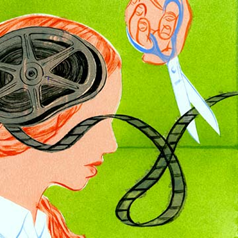“Do you remember what happened?” is generally one of the first questions a person is asked after going through a traumatic event. This question can cause a great deal of distress but also confusion for most people who have endured trauma. They might start to panic at the idea of not remembering, this common form of “blacking out,” or perhaps they can only remember fragments of the memory, just quick flashes of what occurred. Others may relive the moments in vivid detail, thrown off by the intensity of the past trauma that they can’t seem to forget. To understand what determines the strength of a memory, we need to ask one question: What is going on within the body during these traumatic, stressful events?
Inside the Brain
When we experience stressful situations, our brain has to make a choice. It can create stronger, intense memories that will serve as a reminder to our brain and alert itself when a similar situation arises, or it can also block out memories, which is our brain’s way of protecting itself from the pain of remembering the memory and the emotions it elicits. Inside our brain, there is an area called the hypothalamus, which helps formulate our memories. There are hormones called glucocorticoids that are released into the hypothalamus when we experience stress, and this help us consolidate our memories of that time. When this signaling process goes wrong, that is when our memories become too vivid or are absent, resulting in anxiety and PTSD.

What Happens in Anxiety and PTSD?
Stressful situations elicit the glucocorticoid hormones to be released into the hypothalamus to form memories, but in anxiety and PTSD, there is a dysregulation within the system. In these cases, there is a high number of glucocorticoid hormones being released, and too many of them can result in the super strong memories that many people with anxiety and PTSD live through every day. A very low level of glucocorticoids will result in a weak memory being formed, or the memory not being formed at all. The level of hormones determines the strength of the memory through a process called long-term potentiation (LTP). LTP is what strengthens a signal to communicate to parts of the brain. When there are those high levels of glucocorticoids, LTP is enhanced and can form a collection of strong signals, but when there are those low levels of hormones, LTP is suppressed and can’t form strong signals, therefore resulting in a weaker, or absent memory. Now that we know how the background on whether memories are formed or not, how can you cope with a diagnosis of anxiety and PTSD?
Treatments
Can we really prevent traumatic events from happening? The answer would be no, but research suggests that there are ways to possibly prevent traumatic memories from even forming by injecting a glucocorticoid antagonist that would block those hormones from being released. This researched prevention method is a rather controversial topic. There are a variety of well-researched treatments and coping mechanisms available for these disorders like therapy, exercise, and pharmacological options like Selective Serotonin Reuptake Inhibitors (SSRI), which you can read more about here: https://www.mayoclinic.org/diseases-conditions/depression/in-depth/ssris/art-20044825
Understanding the neurochemical basis of what is happening during these stressful situations is incredibly important to move forward treatment options for those affected.
